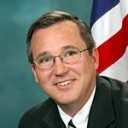
“It is too probable that no plan we propose will be adopted. Perhaps another dreadful conflict is to be sustained. If to please the people, we offer what we ourselves disapprove, how can we afterwards defend our work? The event is in the hand of God.”
The quote has much to say about Washington, his fellows, and the Christian faith that prevailed in that critical era of American history. As to Washington specifically, in light of so many similar statements by the Father of Our Country, it testifies 1. that he was morally driven; 2. that his moral outlook was was the result of religious conviction, 3. that he habitually looked for the hand of God in all things (a sign of his humility), and 4. that he never hesitated to declare with a heart full of gratitude what he perceived to be that hand whether in public or private, in letters or in speeches, among intimate friends and strangers. He felt certain that the Almighty had ruled in favor of America in the late Revolution. That in the eternal scheme of things God had singled out America for a great work. Yet the work of the Revolution was incomplete, and besides that, he consistently felt to add a proviso as to its chances of continued success.
Which takes us back to his warning to his fellow founders to avoid “what we ourselves disapprove.” He wasn’t a politician, but of the cloth of men who believed faith ought to be matched with goodly works or else it was solemn mockery to expect God’s grace, power, and protection on behalf of an individual, an army, or a nation.
And God’s intervention was certainly needed here. To Washington, the current crisis was greater than the war itself. America, under that rushed temporary measure called The Articles of Confederation, was swinging between anarchy and monarchy. There had even been schemes to make him King. The convention, which he helped encourage through frequent letters to key leaders, came together to meet that crisis. Nevertheless he worried, “It is too probable that no plan we propose will be adopted” by the states. If there was any hope of overcoming that opposition which would surely come from that quarter, the plan they produced would have to be worthy, worthy enough to bring God into the formula, worthy enough so that these founders fired up with faith and confidence in it might effectively spread the word, defend it against its detractors, inspire others to do the same, and ultimately prevail for the salvation of the country.
But looking back, Washington thought one more thing requisite from these men and his countrymen. Several years earlier he sent a circular to every governor. In it he plead:
“I now make it my earnest prayer, that God would have you, and the State over which you preside, in his holy protection … that he would most graciously be pleased to dispose us all to do justice, to love mercy, and to demean ourselves with that charity, humility, and pacific temper of mind, which were the characteristics of the Divine Author of our blessed religion, and without an humble imitation of whose example in these things, we can never hope to be a happy nation.”
Washington knew that it was not only a wise Constitution that was wanted, but a virtuous people to uphold it. So it was. And the Constitution, the best ever struck off by the pen of man, came into being. Many of the delegates, also men of faith, acknowledged it a miracle. Two and a quarter centuries later, even after sustaining “another dreadful conflict,” we are the blessed recipients of that remarkable work.
But now the test is fully upon us again. Today, though there are millions of Americans who believe in and defend that sacred document, and who faithfully uphold and practice the great moral code of “the Divine Author of our Religion;” we have others, many of them in positions of power in Washington D.C., others in our federal courts, and still others in our state capitals, institutions of learning, and the media who reject the miracle of 1787, who are openly hostile to the Judeo-Christian ethic that lay at its foundation, and who laugh at those who would ask ‘by what Constitutional authority’ this or that law is created or negated. The hour is late. The test real.
In their hour of crisis, the Father of Our Country and his fellow delegates, out of the wisdom and integrity of their hearts brought forth a marvelous work that their consciences fully approved, that many of them declared God’s hand was in, and then proved themselves moral enough to uphold despite many severe tests. But what about me and what about you? Will we follow in their footsteps? Will we pray to God and then get to work in defending that Constitution God wrought through our forefathers? Will we in fighting the good fight still love our neighbor as ourselves? Will we in every victory great and small maintain that humility that becometh a Christian, acknowledging His hand in all things?
If so, we can with Washington declare, “the event is in the hand of God;” and believe with him that the Divine Author of Our Religion and Liberties will intervene to restore America to her Providential role as that ‘light on the hill republic.’
Steve Farrell is one of the original pundits at Silver Eddy Award Winner, NewsMax.com (1999–2008), associate professor of political economy at George Wythe University, the author of the highly praised inspirational novel “Dark Rose,” and editor in chief of The Moral Liberal.



